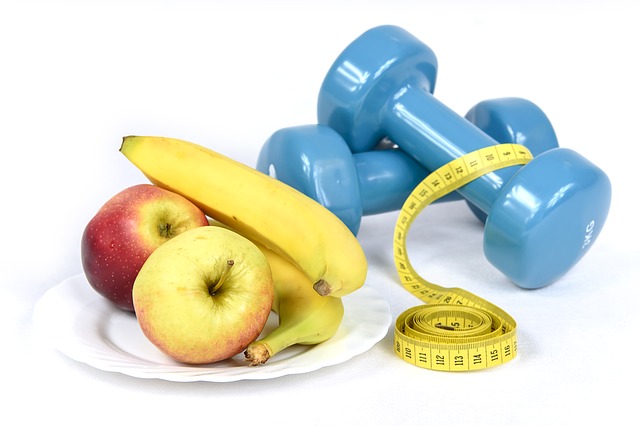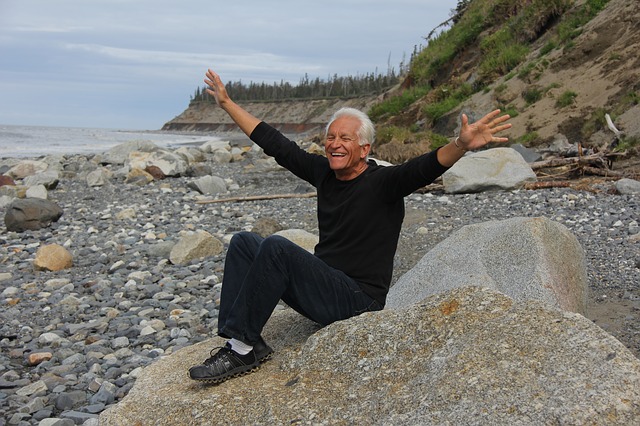American Heart Association Recommendations for Physical Activity in Adults

Being physically active is important to prevent heart disease and stroke, the nation's No. 1and No. 5 killers. To improve overall cardiovascular health, we suggest at least 150 minutes per week of moderate exercise or 75 minutes per week of vigorous exercise (or a combination of moderate and vigorous activity). Thirty minutes a day, five times a week is an easy goal to remember. You will also experience benefits even if you divide your time into two or three segments of 10 to 15 minutes per day.
For people who would benefit from lowering their blood pressure or cholesterol, we recommend 40 minutes of aerobic exercise of moderate to vigorous intensity three to four times a week to lower the risk for heart attack and stroke.
Physical activity is ANYTHING that makes you move your body and burn calories.
This includes things like climbing stairs or playing sports. Aerobic exercises benefit your heart, and include walking, jogging, swimming or biking. Strength and stretching exercises are best for overall stamina and flexibility.
The simplest, positive change you can make to effectively improve your heart health is to start walking. It's enjoyable, free, easy, social and great exercise. A walking program is flexible and boasts high success rates because people can stick with it. It's easy for walking to become a regular and satisfying part of life.
|
The American Heart Association's Diet and Lifestyle Recommendations

A healthy diet and lifestyle are your best weapons to fight cardiovascular disease. It's not as hard as you may think! Remember, it's the overall pattern of your choices that counts. Make the simple steps below part of your life for long-term benefits to your health and your heart.
Use up at least as many calories as you take in.
- Start by knowing how many calories you should be eating and drinking to maintain your weight. Nutrition and calorie information on food labels is typically based on a 2,000 calorie diet. You may need fewer or more calories depending on several factors including age, gender, and level of physical activity.
- If you are trying not to gain weight, don't eat more calories than you know you can burn up every day.
- Increase the amount and intensity of your physical activity to match the number of calories you take in.
- Aim for at least 150 minutes of moderate physical activity or 75 minutes of vigorous physical activity - or an equal combination of both - each week.
Regular physical activity can help you maintain your weight, keep off weight that you lose and help you reach physical and cardiovascular fitness. If it's hard to schedule regular exercise sessions, try aiming for sessions of at last 10 minutes spread throughout the week.
If you would benefit from lowering your blood pressure or cholesterol, the American Heart Association recommends 40 minutes of aerobic exercise of moderate to vigorous intensity three to four times a week.
Eat a variety of nutritious foods from all the food groups.
You may be eating plenty of food, but your body may not be getting the nutrients it needs to be healthy. Nutrient-rich foods have minerals, protein, whole grains and other nutrients but are lower in calories. They may help you control your weight, cholesterol and blood pressure.
Eat an overall healthy dietary pattern that emphasizes:
- a variety of fruits and vegetables;
- whole grains;
- low-fat dairy products;
- skinless poultry and fish;
- nuts and legumes;
- non-tropical vegetable oils
Limit saturated fat, Trans fat, sodium, red meat, sweets and sugar-sweetened beverages. If you choose to eat red meat, compare labels and select the leanest cuts available.
One of the diets that fit this pattern is the DASH
(
Dietary Approaches to Stop Hypertension
)
eating plan. Most healthy eating patterns can be adapted based on calorie requirements and personal and cultural food preferences.
|
Celebrating February with Four Pearls for Heart Health

It's February, Heart Month! This is the perfect time for heart aware
ness and ways to help maintain heart health. Simple changes in the way we live each day can make big differences in our long-term health. While you probably know the importance of a heart-smart diet and regular exercise, I want to suggest these pearls that can have a significant effect on your cardiovascular system.
Pearl # 1: Cut down on sugar
Sweet treats and chocolate candy are synonymous with Valentine's Day, but sugar is one of the top food triggers of inflammation. Research shows that chronic inflammation is a major culprit in a number of serious diseases, including heart disease; in fact, it may be a greater cause of heart disease than cholesterol. Besides the obvious choices of candy and sweet treats, simple carbohydrates like fruit juice, soda and alcoholic beverages are also loaded with sugar. Reducing your sugar intake will help avoid inflammation and also prevent the "sugar rush" and "crash" that cause insulin levels to quickly spike and drop. Limit your added sugar to 20 grams a day.
Pearl # 2: Breathe and relax
We experience stress in our everyday life. When things become more than we think we can handle, whether from work issues, financial problems, family conflicts, or too much to do under time constraints, we can get short tempered and annoyed. This causes your blood pressure to surge, your heart rate to increase and your blood vessels to constrict. This state has primed your body for a heart attack! Recent research shows that the risk of heart attack raises nearly fivefold, and the risk of stroke more than threefold in the two hours following an angry outburst. Since you often cannot change what happens around you, work to change your perceptions of stress-filled events. Do your heart a favor and make an effort to react without anger. You can almost always find time to practice heart-focused breathing. This disrupts your body's negative response to stress, calms you and helps you to refocus. Take five slow, deep breaths, counting to five on your inhales, and five on your exhales. Imagine you are actually breathing from your heart.
Take the time in a traffic jam to listen to your favorite music. When things seem overwhelming, take a break and go for a ten-minute walk.
Pearl # 3: Make social connections
Social connections are vital to heart health. Depression is another important factor in heart disease and overall health. A research study spanning 17 years and following 7,000 men and women found that those who lacked social support, such as friends, relatives, social circles or religious groups, had a death rate three times higher than average. Make it a point to connect with family members or friends, even if it's just a phone call. You can socialize through groups that share your professional or personal interests or religious beliefs, and many virtual groups are available online.
Reaching out to others, especially those who may be less fortunate than you, can do wonders for your physical, emotional and spiritual health. Consider adopting a pet from a shelter. The important thing is to make a heartfelt connection.
Pearl # 4: Be grateful
Practice gratitude every day for what you already have. You can be grateful for a close friend, a beautiful sunset, a warm bed, or a soothing cup of tea. These things we often overlook and take for granted. As you let yourself experience true heartfelt gratitude, you will find that your heart rate slows, your breathing deepens, and you feel more at peace overall.
Learn to carry this "attitude of gratitude" throughout the day. Eventually this practice will become second nature. The more you practice heartfelt gratitude the more your health will benefit.
Author:
Mimi Guarneri, MD, FACC, ABOIM
President, Academy of Integrative Health and Medicine
Medical Director, Guarneri Integrative Health Inc. at Pacific Pearl La Jolla
Dr. Guarneri's new book, "108 Pearl to Awaken Your Healing Potential," will be published by Hay House in April, 2017.
www.PacificPearlLaJolla.com
|
Living A Heart-Healthy
Senior Life

With age comes an increased risk for heart disease and all cardiovascular diseases, and it is important to make smart choices as you and your loved ones look to maintain health and wellness.
According to Ralph Sacco, M.D., chief of neurology at the Miller School of Medicine at the University of Miami and past president of the American Heart Association, "New studies have shown that the risk factors that can lead to heart disease and stroke, such as high blood pressure, physical inactivity and obesity, also contribute to dementia, Alzheimer's disease, memory loss and cognitive dysfunction."
The American Heart Association has developed the My Life Check® program using Life's Simple 7®, a simple, seven-step list to help people live a longer, more productive, healthier life:
- Manage blood pressure
- Control cholesterol
- Reduce blood sugar levels
- Get active
- Eat better
- Lose weight
- Stop smoking
These measures have one unique thing in common: any person of any age can make these changes. The steps are not expensive or difficult to take, and even modest health improvements will make a big difference.
|
|
|
In This Issue...
- American Heart Association Recommendations for Physical Activity in Adults
- The American Heart Association's Diet and Lifestyle Recommendations
- Celebrating February with Four Pearls for Heart Health
- Living A Heart-Healthy Senior Life
- Types of Fitness
- Banana Split Berry Yogurt Parfaits
- Fun Facts about the Heart & Love
- Volunteerism: Celebrating Your Cause
- Our Mission, Values, and Vision Statements
|
Maintaining an active lifestyle is important in order to keep your body fit and healthy. Integrating a variety of exercises that focus on balance, strength, endurance and flexibility into your workout routine helps break up the monotony and creates a more well-rounded fitness program that your heart and body will appreciate.
Balance Exercise:
Exercises that improve balance are important to prevent falls. Balance exercises are easy to incorporate into your routine and can be performed anywhere or anytime.
Endurance Exercise (Aerobic):
A good run, swim or bike ride can reduce your risk of heart disease and improve your overall health. Incorporate endurance exercises into your routine with these fitness tips.
Flexibility Exercise (Stretching):
Improving your flexibility starts with proper stretching. Improve your range of motion with these stretching tips.
Strength Training Exercise: Increase your body's strength and improve your quality of life by including a well-rounded strength-training program into your regular fitness routine.
Walking: Walking is one of the simplest forms of exercise you can do to maintain a heart-healthy lifestyle. Take steps towards
healthier living by incorporating walking into your daily routine.
Yoga: More than just a great way to relax, yoga can help tone your body, improve your balance and even lower your blood pressure.
|
Banana Split Berry Yogurt Parfaits

Ingredients:
2 6 - oz. packaged, fat-free pineapple yogurt
1 cup sliced strawberries OR 1 cup mixed berries
1 large banana (about 1 cup sliced)
1/4 cup low-fat granola (4 Tbsp.)
1 Tbsp. cocoa (unsweetened)
1 Tbsp. confectioner's sugar
2 tsp. hot water
Keep it Healthy: Yogurt can be a delicious, healthier substitute for ice cream or whipped cream in any recipe.
Tip: Instead of fresh berrie
s you can substitute 1 cup frozen mixed berries, thawed.
Substitute any flavor of nonfat yogurt you enjoy.
Directions:
1. To assemble parfaits, in small dish, layer about 1/3 cup yogurt, 1/4 cup sliced strawberries, 1/4 cup sliced bananas and sprinkle with 1 tablespoon granola.
2. In small cup, stir together cocoa, confectioners' sugar and hot water until smooth. Drizzle 1 teaspoon over each parfait.
Recipe copyright © 2016 American Heart Association. This recipe is brought to you by the American Heart Association's Simple Cooking with Heart ® Program. For more simple, quick and affordable recipes, visit heart.org/simplecooking.
|
Fun Facts about the Heart & Love

- Holding a loved ones hand can relieve pain & stress
- Want to know how big your heart is? Make a fist!
- Every Valentine's Day, Verona, the Italian city where Shakespeare's play Romeo and Juliet took place, receives around 1,000 letters addressed to Juliet.
- It only takes 4 minutes to decide whether you like someone or not
- Butterflies in the stomach are real and they're actually caused by adrenaline
- Men who kiss their wives in the morning live five years longer than those who don't
|
Volunteerism: Celebrating Your Cause
 Lifeline is always looking for ways to offer resources to our families, friends, and partners in Senior Care. We recognize the need for people who genuinely seek to offer assistance in a number of different ways, to organizations that meet their particular passion.
Lifeline is always looking for ways to offer resources to our families, friends, and partners in Senior Care. We recognize the need for people who genuinely seek to offer assistance in a number of different ways, to organizations that meet their particular passion.
Whether it be Meals on Wheels, the San Diego Humane Society, or St. Vincent De Paul's, we want to know what organization you have made a part of your life, contributing to your community, and working to make a better world for us all. You will also have the chance to be featured in our Volunteerism newsletter, which goes out to a number of Senior Care professionals and many of the other businesses we partner with.
You may begin the Volunteerism application process by clicking
here. Once you have completed this application you can email it to Michelle Ozun, at MOzun@lifelinecares.com.
|
|
Mission
To bring quality of life and peace of mind through personalized care solutions that support the immediate needs of the elderly, cognitively impaired, physically or mentally challenged, their families and the surrounding community.
Values
Competency
Compassion
Professionalism
Responsiveness
Vision
To be the first choice of San Diego's elderly, cognitively impaired, physically or mentally challenged, their families, healthcare providers and trusted advisers when there is a need for quality care for someone to thrive, not just survive.
|
|